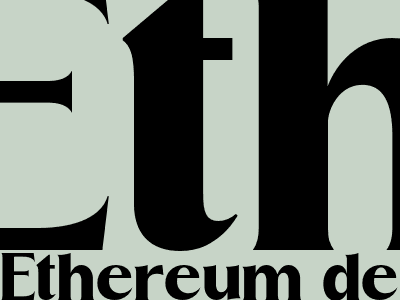
Ethereum Devs Publish EIP-7809 Proposal for Native Tokens
Introduction
The Ethereum community has been eagerly anticipating the implementation of native tokens on the network. This would allow for the creation of fungible and non-fungible tokens directly on the Ethereum blockchain, without the need for external token standards like ERC-20 or ERC-721.
In a significant development, Ethereum developers have published EIP-7809, a proposal that outlines the technical specifications for native tokens on Ethereum.
EIP-7809: Key Features
EIP-7809 introduces several key features for native tokens on Ethereum:
- Fungibility: Native tokens will be fungible by default, meaning that each token is indistinguishable from any other token of the same type.
- Non-Fungibility: It will also be possible to create non-fungible native tokens, which are unique and cannot be divided into smaller units.
- Optimized Gas Costs: Native tokens will have significantly lower gas costs for common operations compared to ERC-20 tokens.
- Simplified Interface: The creation and management of native tokens will be streamlined through a simplified interface.
Benefits of Native Tokens
The implementation of native tokens on Ethereum offers several advantages over existing token standards:
- Reduced Complexity: Native tokens eliminate the need for complex smart contracts, reducing the risk of vulnerabilities and improving code efficiency.
- Enhanced Security: Native tokens are secured by the underlying Ethereum blockchain, providing a high level of protection against fraud and theft.
- Scalability: Native tokens leverage Ethereum's scalability solutions, such as sharding, to handle high transaction volumes.
- Lower Costs: Native tokens benefit from lower gas costs, making them more affordable to create and transfer.
Next Steps
The EIP-7809 proposal is currently under discussion and review by the Ethereum community. If approved, it will be implemented in a future hard fork of the Ethereum network.
The implementation of native tokens on Ethereum is a significant development that has the potential to revolutionize the creation and use of tokens on the network. By providing a more efficient, secure, and scalable solution, native tokens will open up new possibilities for developers and users alike.